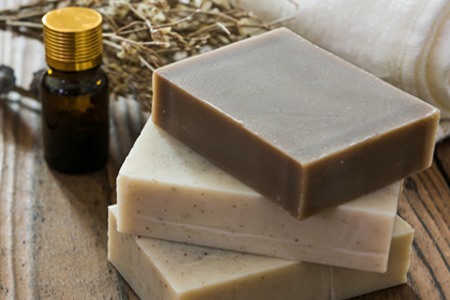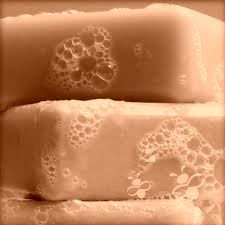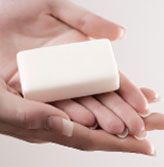Newsletter
You can sign up for our e-mail newsletter to be informed about the developments.


Soaps are ‘chemical products’ that constitute an important part of our personal hygiene and care in daily life. Soap is the term given to the salt formed by the reaction of an acid (fatty acid) with a base (alkali).
With a history of over 2000 years, the original use of soap was undoubtedly for cleaning purposes. Over the years, the methods of making soap and the additives used have diversified and increased. Today, soaps are produced in various types and forms by adding dyes, fragrances, deodorants, antibacterial agents, creams, lotions, and various other additives.
In the market, there are many types of soap that differ in brand, variety, color, scent, and packaging. Advancing technology has also introduced plant-based and antibacterial soaps into our lives. “Although soaps are among the first products that come to mind when thinking about cleanliness and hygiene, many soaps sold on the market can do more harm than good because they are not suitable for the skin’s pH balance.
Types of Soaps and Their Effects on the Skin
Deodorant (Fragrant) Soaps: While they are enjoyable to use because they eliminate odor-causing bacteria and leave a pleasant fragrance on the skin, these soaps can also be quite harmful to the skin. These types of soaps can be used for body cleansing, but scented soaps should be avoided for facial cleansing. These soaps, which also carry the risk of allergic reactions, are not compatible with the skin’s pH balance.
Drying and Oily (Creamy) Soaps: When you wash your face with these soaps, you might feel like it is very clean and notice that your acne seems to dry up. While this might seem like a desirable outcome, it can actually be the beginning of other problems. Soap removes all oils from the skin. However, the skin also needs its natural sebum oil. Sebum oil protects the skin and provides elasticity. If your skin immediately becomes dry or oily after washing, it means the soap you’re using is not suitable for your skin’s pH balance. Excessively oily soaps can clog skin pores and prevent the skin from breathing. In skin that cannot renew itself, blackheads, acne, and pimples can form, and the healthy structure of the skin is compromised.
Antibacterial Soaps: Antibacterial soaps contain higher concentrations of antibacterial agents. Antibacterial soaps can quickly irritate the skin under normal conditions and should only be used in hospital settings or during times when the risk of infection is higher.
Natural Fruit Soaps: These are soaps that many people consider to be less harmful due to their name. However, soaps that are suitable for the skin’s natural balance are specially formulated and, though they may not sound appealing, are ‘synthetic soaps.
Vitamin-Enriched Soaps: Although they sound appealing like natural soaps, these types of soaps are not beneficial because the vitamins they contain will wash away with water.
Although soaps are used for cleaning, contrary to popular belief, they are not antiseptic, meaning they do not kill germs. Soaps only provide mechanical removal of dead skin cells, various bacteria, oily secretions, dried sweat, and dust from the surface of the skin. Each skin type requires a different method of cleansing. Cleaning of skin with acne and pimples should be done with utmost sensitivity and care. People with such skin issues who use soaps that are not suitable for their skin’s pH balance will likely exacerbate their acne and pimple problems. People with acne and pimple issues should use products specifically designed for these skin problems for their skin cleansing. This will be a more appropriate choice for maintaining skin health and beauty.